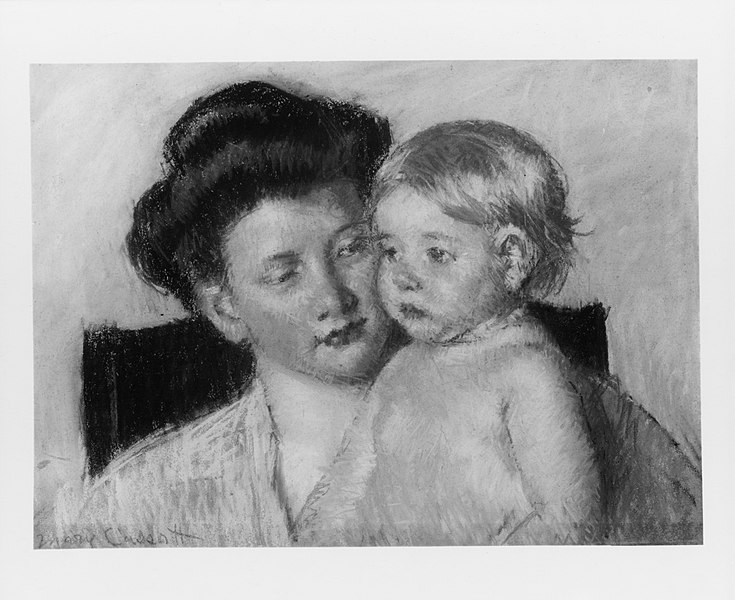Alex Sosler recently wrote about how “Marriage Will Kill You (And That’s Good). I would add that parenting will kill you, too, and that is also good. If the only way we can hope to save our lives is to lose them, we should welcome the practical, nitty-gritty opportunities that marriage and parenting provide to die to our own desires and serve the good of others. Finding ways to respond to the needs of others with love can bring unexpected joys. As Wendell Berry writes, “the impeded stream is the one that sings.”
But first, let me recount a story from the halcyon days of newly wedded bliss, when my husband and I were still starry-eyed optimists about the joy and fulfillment parenting would bring.
It was a Saturday morning in mid-February 2012. We’d been married for just over a year, and we were finally feeling comfortable with each other. Kids were a couple years away, so Saturdays were usually a leisurely affair. On this particular morning, my husband, Caleb, had gone to a men’s Bible study and breakfast, and I planned to pick him up when he was finished. I was in my pajamas, tidying up and grading papers, when he called. It would be a quick trip across town—I wouldn’t even have to exit the car—so I wasn’t overly worried about my appearance. After we returned home, I planned to dress for the wedding I’d subsequently be serving at, so for the moment I slipped into clunky black boots, shrugged a knee-length winter coat over my leopard-print loungewear, and clomped up the steep cement steps of our basement apartment into the bright midwinter sunshine.
I parked outside my uncle and aunt’s, who were hosting the study, and called Caleb. A few moments later he skidded down the hill to our car, eyes shining and a wide grin stretching across his face. “Sarah, there’s a pastor here from Siberia. Pastor Peter would love to talk to him more, but Pastor Kirill’s English isn’t very good. I told them you know Russian, and they asked if we could follow them out to Pastor Peter’s house so you could translate.” I looked at him blankly. “Uhhh…well…” I stammered. “I’m in my pajamas, and I have to be at church in two hours.” I smiled at him pleadingly, but Caleb rejoined with a plea of his own. This was the pastors’ last chance to talk together with a translator. I caved and scooted to the passenger seat; Caleb quickly told the pastors we would follow them, and when he returned, I queried about my appearance. There was no time to change, so we pulled out behind Pastors Peter and Kirill. We followed them beyond the town limits and out into frost-covered hills. At the end of a winding driveway, we stopped before a house tucked amongst evergreens. Pastor Peter invited us in and offered to take my coat. I kindly demurred and sat, puffy coat zipped up to my chin, in a deep study chair. Lining every wall around us, from floor to ceiling, were books. Books were stacked on side tables and corners of the main table and empty chairs. It was a book lover’s fairytale. It took all my powers of concentration to wrest my attention from them and listen to the flow of conversation between pastors.
They talked genially, pausing for me to translate. As they talked, they were periodically interrupted by Pastor Peter’s adolescent children. At intervals, the teens peeked in the study door to ask questions of their dad. Each time one entered, Pastor Peter’s face lighted with delight, and he paused the conversation to introduce his son or daughter and respond to their needs.
We ended our time, said our goodbyes, and bundled ourselves into our car for the trip home. As we drove, we marveled at how Pastor Peter treated his children. He did not hastily brush them aside or shame them. And he was not ashamed of them. They were not interruptions—they were his treasures.
Neither Caleb nor I had grown up in a “children must be seen and not heard” sort of household, but we both had an implicit assumption that “when important international guests arrive, you shouldn’t interrupt dad unless your arm has been cut off or the house is on fire.” Yet we were not put off by Pastor Peter’s response to his children; we were deeply moved by it. As we mused, we found that we both desired to treat our future children with the welcoming delight that Pastor Peter exhibited toward his kids.
Fast-forward almost twelve years. Our three kids are cozily packed in the Expedition as I stop by my friend’s home to pick up some dishes borrowed for a school staff Christmas party. As my friend and I chat outside, the kids become increasingly agitated inside. They had wanted to come out with me, and they felt rejected by my, “No, I’ll be right back. Sit tight.” So they take out their frustration on each other. The preschooler is crying, the kindergartener has stripped his Velcro dress shoes and ankle socks and is alternating between kicking the back of the preschooler’s seat and wiggling his barefooted piggies in the third-grader’s space while smugly chanting “stinky feet, stinky feet.” In response, the third grader loudly whines and bangs on the tinted window that separates her from me.
I stand on the sidewalk, coat hugged tight to my body, nodding and smiling as my friend tells me how much my kids have grown this year; I turn and wave towards the car where the kids are desperately clamoring for my attention, and something inside me dies. The dissonance between what my friend is saying about my kids and the way my kids are behaving is almost unbearable. The kids’ volume increases as I wave goodbye to my friend and return to the car. We drive home, and the kids apologize to one another and to me; and once home, the stinky-footed kindergartener does his sisters’ share of the dishes.
Yet I still can’t shake my helpless embarrassment at the afternoon’s shenanigans. When Caleb returns from work, I recount the details of my sordid story, despairing of ever living up to Pastor Peter’s example of delight in his children. All I feel toward them is a healthy heap of shame and anger.
With calm equanimity, Caleb reminds me of what had impressed us in that warm study so many years before: Pastor Peter had preferred his kids over his guests. His offspring weren’t an annoying interruption—they were his prizes. Caleb gently reminds me that while yes, we must continue to work with our kids on being respectful while their parents are engaged, I also must practice preferring them in love–politely ducking out of conversations to address their needs and showing them—and the world—how I delight in them.
What this means is death. When our kids were little, parenting meant death to my independence: my time, my space, my very body, were no longer my own. Parenting meant death to sleeping in and going out on a whim. It meant death to plans carefully wrought and carelessly wrecked by fever and blowouts and ear infections.
Now that they are little older, parenting means death to image. It is death to my desire to be in control, to not be bothered, to not have to say something more than once; death to my selfish vainglory that wants to be known as “having my ducks in a row”; death to the appearance of good parenting that denies the sacrificial love thereof.
And so I die daily. I repent quickly and listen slowly. I surrender seeds of self-preservation and self-promotion, letting them fall to the ground and die. And as I wait for their resurrection—a harvest of righteousness in my life and my kids—in faith I laugh. Like a burbling stream, laughter flows from childish antics and childlike jokes; laughter bubbles up at idiolects and innocent delight. Though impediments come, as I contemplate these priceless treasures I’ve been gifted, the astonished laugh of Sarah of old wells up. All really is grace.
Image credit: via Wikimedia Commons






4 comments
Sarah
Will,
Thank you for sharing! I too am in constant need of humility, and parenting provides daily opportunities for it. 🙂
What a gift to know that while the proud will be brought low, the humble will be exalted!
Will Caverly
This was wonderful. I have two young kids and it’s always amazing, and often difficult. This is just what I needed to read today. Humility is something practiced for me, not a personality trait. I will continue to try to stay humble.
Sarah
Thank you, Dan! I appreciate and agree with your insights. Your metaphor of unbridled self as a metastasizing cancer is apt.
It’s beautiful to see that—just as with the seasons—death begets resurrection, winter gives way to spring. The solitary seed that goes into the ground sprouts up and becomes many. It’s that hope of new life which makes the little daily deaths possible. They are not the end. A harvest is.
Dan Grubbs
Sarah, I commend you for being bold enough to express these idea, and expressed so wonderfully. I fear you may hear from those who who put the self first.
I have long taught to young people that marriage is a death of the self in favor of a new creation. If someone thinks that is crazy, then I simply point to the number of broken marriages and families. When the scriptures teach us that two have come together to form a new creature and the two earlier creatures no longer exist so the new creature may thrive. The feeling of self must dissolve away and the growing of this new creature together with a spouse who has likewise put away the self in favor of the new creature. Isn’t this similar to the new creature we become when we are “in Christ” and put the old self away in favor of the new born-again self, a new creature?
You have so eloquently illustrated that being a parent is very much like this. If parents or spouses feel the need for “me time” then I also boldly suggest they have not created a new singular creation out of two, but held onto the old self which will only fester and mostly likely will metastasize.
The benefit of being a parent with a spouse is that the new creature has the energy, creativity, compassion, and love equal to the sum of two people directed to their children. One is not better or lessor than the other because it is a new creation. Even much better than to demonstrate this before your children.
Yes I believe there are biblical roles we each play within this new creation, but the fact remains this is a singular new entity as a married couple who now have double the ability to rear children with the same values.
Comments are closed.